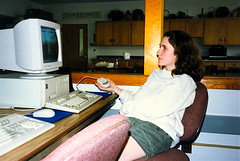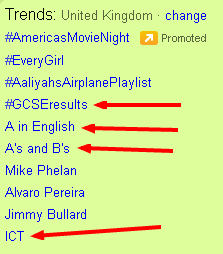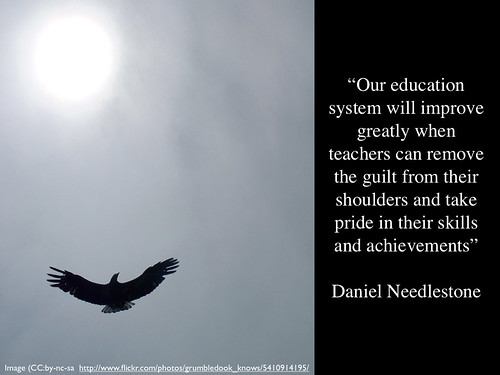I’m very pleased that Limmud Conference will once again be streaming a selection of sessions. Pleased partly because I was one of the people who helped bring online streaming to Limmud last year and experimented with various forms of streaming for my own sessions in previous years. Pleased even more because I won’t be at Limmud this year so can watch some online!
Whatever your background or faith there is bound to be something interesting in the list of sessions… below.
You can view sessions at www.livestream.com/limmud or in the window below (when sessions are showing)
These sessions are the ones planned to be broadcast:
Sunday 25 December: 11.00 – 12.10
The Eichmann Trial: Its Significance and Impact
Deborah Lipstadt
In 1960 Israel kidnapped Adolf Eichmann in Argentina and brought him to Jerusalem to stand trial. What were some of the legal, historical, and moral issues embedded in this trial? How did this trial change the way in which the world thought about, not just the Holocaust, but genocide and the need to adjudicate it? What has been the impact of this trial and why is it still important fifty years after the event
Sunday: 18.40 – 19.50
Strangers No More – an Inside Look at Refugees in Israel
Alisa Olmert
In the heart of Tel Aviv, there is an exceptional school where children from forty-eight different countries and diverse backgrounds come together to learn. Many of the students arrive at Bialik-Rogozin School fleeing poverty, political adversity and even genocide. Here, no child is a stranger. Strangers No More follows several students’ struggle to acclimate to life in a new land while slowly opening up to share their stories of hardship and tragedy.
Sunday: 20.40 – 21.55
Engagement and Disengagement – the Future of Religion in the Land of Israel
Tzvia Greenfield, David Hazony, Anat Hoffman
What is the real place of religion in the lives of Israelis today and what is the relationship between the religious and less observant public in the Land of Israel? Is it one of disengagement, of each one remaining in his corner and ignoring the other, or is it one of hostility? Are there healthy models in place for relationships or other ways that the two worlds can be bridged?
Monday 26 December 12.30 – 13.40
Faith, Doubt and the Road Ahead: Struggling with Our Judaism
Nathan Lopes Cardozo, Elliott Malamet
In the shadow of the Holocaust and yet being practiced in an age of unprecedented autonomy, how can Judaism remain relevant in people’s lives? How must Jewish law adapt to the challenges of the modern world? What does it mean to be religious? Can one live an authentic Jewish life while in doubt? Please join Nathan Lopes-Cardozo and Elliott Malamet as they engage in a wide ranging and free thinking conversation.
Monday: 15.30-16.20
J-DOV Talks: Jewish Dreams, Observations, and Visions (2 of 3)
Shoshana Boyd Gelfand, Jonathan Boyd, Seth Cohen, Deborah Lipstadt
Ever wondered what it would look like if you crossed Limmud Conference with TED, (the popular conference which brings inspiring speakers to give ‘the talk of their life’ in 18 minutes or less)? Here is your chance to find out. For three days at Limmud, immediately prior to Channukah candlelighting, Shoshana Boyd Gelfand will host a session where nine of the most inspiring presenters at Limmud offer us ‘the talk of their life’.
Monday: 17.10-18.20
If It Walks Like a Duck: What Makes a Jew Jewish?
Shmuley Boteach, Sergio DellaPergola, Yaffa Epstein, Clive Lawton, Jonathan Romain
Jewish identity is a notoriously slippery term and yet it is the preoccupation of many a Jewish conversation. Are there core factors that comprise Jewish identity? Or is it simply whatever definition it is given by a generation of Jews? Is there such a thing as Jewish culture?
Monday: 18.40 – 19.50
What’s Going on in US Politics? Issues that Unite and Divide US Jews
Marvin Feuer, Wayne L Firestone, Ellen Flax, Shuly Schwartz
Tories and Patriots, Slaveholders and Abolitionists: Jews in America have been divided on political issues since the birth of the republic. From immigration policy and church-state boundaries to economic policy and gay marriage rights, American Jews have taken positions on both sides of most issues. As we prepare for the 2012 election, partisanship abounds, with policy on Israel most divisive. Join us as we discuss the significance of the Jewish stance on US politics.
Tuesday: 09.30-10.40
Israel’s PR – Time for Fresh Ideas
Uri Dromi
After decades of ‘Hasbara’ efforts, we still complain about Israel’s image in the media. It’s about time that Israel’s true side of the story and its prettier faces should be given a chance. The answer is ‘soft action’, where journalists based in Israel and visiting it will be exposed to Israelis who are not warriors or politicians only, but warm human beings, who yearn for peace and a better future for their children
Tuesday: 11.00 – 12.10
Kosher Jesus
Shmuley Boteach
Shmuley offers a radically new perspective, based on years of ground-breaking research, about the world’s most famous personality. He conclusively determines that the Jews did not kill Jesus, and explains why the New Testament editors made the Jews culpable as the story took shape. The idea is to hope these realisations will strengthen Jewish-Christian ties and values, with Jesus (historically the barrier separating the two peoples) serving as the bridge between the two faiths.
Tuesday: 12.30 – 13.40
Justice, Justice You Shall Pursue, that You May Live and Inherit the Land the Lord Your God Gives You
David Breakstone, Louise Ellman, Daniel Levy, Elliott Malamet, Michael Sternberg
The debate about Israel and her neighbours is becoming increasingly strident. There is enormous pressure within the community and the public at large to separate fact from fiction, legitimate criticism from distortion, historical truth from clever propaganda. This panel will discuss some of the moral complexities.
Tuesday: 15.30 – 16.20
J-DOV Talks: Jewish Dreams, Observations, and Visions (3 of 3)
Shoshana Boyd Gelfand, Samuel Lebens, Jeremy Leigh, Alicia Jo Rabins
Ever wondered what it would look like if you crossed Limmud Conference with TED, (the popular conference which brings inspiring speakers to give ‘the talk of their life’ in 18 minutes or less)? Here is your chance to find out. For three days at Limmud, immediately prior to Channukah candlelighting, Shoshana Boyd Gelfand will host a session where nine of the most inspiring presenters at Limmud offer us ‘the talk of their life’
Tuesday: 17.10 – 18.20
Muslim and Jewish Communal Relations of the Future – Discussion with Existing and Emerging Leaders
Mohammed Aziz, Dilwar Hussain, Charles Keidan, Miriam Lorie,Abdul-Rehman Malik, Stephen Shashoua
This session will probe the issues facing Muslim and Jewish communities individually and collectively. It will pay particular attention to the tensions between communities in order to explore together how they can be dealt with. The panellists have proven themselves, through their work with communities, to be leading figures – what solutions can they offer?
Tuesday: 19.10 – 20.20
UK Jewry: Challenges, Achievements and the Future
Norma Brier, Laura Marks, Vivian Wineman
This panel discussion, hosted by the President of the Board of Deputies, will bring together some of the community’s leading lights in the areas of education, social care and volunteering to examine what the future might hold for the UK’s Jewish community. We’ll be asking some tough questions; expect some frank answers
Tuesday: 20.40 – 21.55
Trouble in the Family: Can We Ever Be One People?
Jonathan Boyd, Shmuel Klitsner, Joel Levy, Helena Miller, David Shneer
Is Jewish unity a myth? It seems that Jews argue about everything, and are only briefly united by the simplest propositions. What is the basis for the rifts between Jews and is common ground achievable?
Wednesday: 11.00 – 12.10
Social Revolution in Israel
Daphni Leef, Roee Neuman, Barak Segel
This summer has been an outstanding summer in Israel. For the first time in 63 years, the people have spoken! This session will introduce the turmoil in Israel in the past few months.
Wednesday: 12.30 – 13.40
Are There Any Honest Journalists Left?
Daniel Johnson, Eetta Prince-Gibson, Gil Shefler
In light of the News of the World scandal, trust in the media is at an all time low. Is this a problem in Israel as well as the UK? This session will discuss the role of Jewish Ethics in Journalism.
Wednesday: 14.00 – 15.10
Love Your Neighbour As Yourself?
Eli Amir, Lorna Fitzsimons, Summer Jaber-Massarwa, Anshel Pfeffer, James Sevitt
Can Israel ever become a friend of her neighbours? What would it take? Has the recent release of Gilad Shalit helped or hindered? The panel will examine the signs.
Wednesday: 15.30 – 16.40
Kosher Sex
Shmuley Boteach
Adults only. Come and discuss a revolutionary approach to intimacy, marriage, and personal relationships, drawing on traditional Jewish wisdom. Based on Shmuley’s international best-selling books on love and intimacy, as well as his experience of counselling individuals and couples, we will break down sexual taboos and openly, yet respectfully, discuss the meanings, emotions, and hidden power of sexuality.
Wednesday: 17.00 – 18.10
Israel/Palestinian State
Daniel Johnson
This will be a discussion on the implications for Israel of a new Palestinian state. The debate would also include a discussion of attitudes towards Israel in the rest of the world.
Wednesday: 18.30 – 19.40
Jewish Culture or Culturally Jewish?
Nathan Abrams, Daniel Cainer, Liana Finck, Rebecca Joy Fletcher, Joel Stanley
Jewish artists and intellectuals have typically remained aloof from mainstream Jewry often because they view it as being more interested in the colour of wallpaper than in culture. Is such a view justified? This panel will explore the role of ideas, arts and culture in the Jewish community. What is the relationship between cultural engagement and the Jewish community? Are there too many taboos? Is British Jewry too scared to produce really engaging art?
Thursday: 10.00 – 11.10
Rebuilding Noah’s Ark: Does the Story of the Flood Really Hold Water?
Raphael Zarum
How did all the animals fit into the Ark? Is there any evidence for this hard-to-believe story? Did it really happen? What should we say when children question us about this? We will analyse traditional commentators from Talmud to today and take in Gilgamesh, Tolkien, Karen Armstrong and the tooth fairy along the way. Can we really hold on to magical realism and rational reality? Come aboard but beware, we’ll be sailing into treacherous waters…
Thursday: 13.00 – 14.10
God Is Not Righteous and the Torah Is Not Moral
Nathan Lopes Cardozo
Still believing in a good God even when earthquakes happen, and diseases kill millions? Still believing in the divinity of Torah even when its laws clash with our moral sensibilities? A whole new approach.





